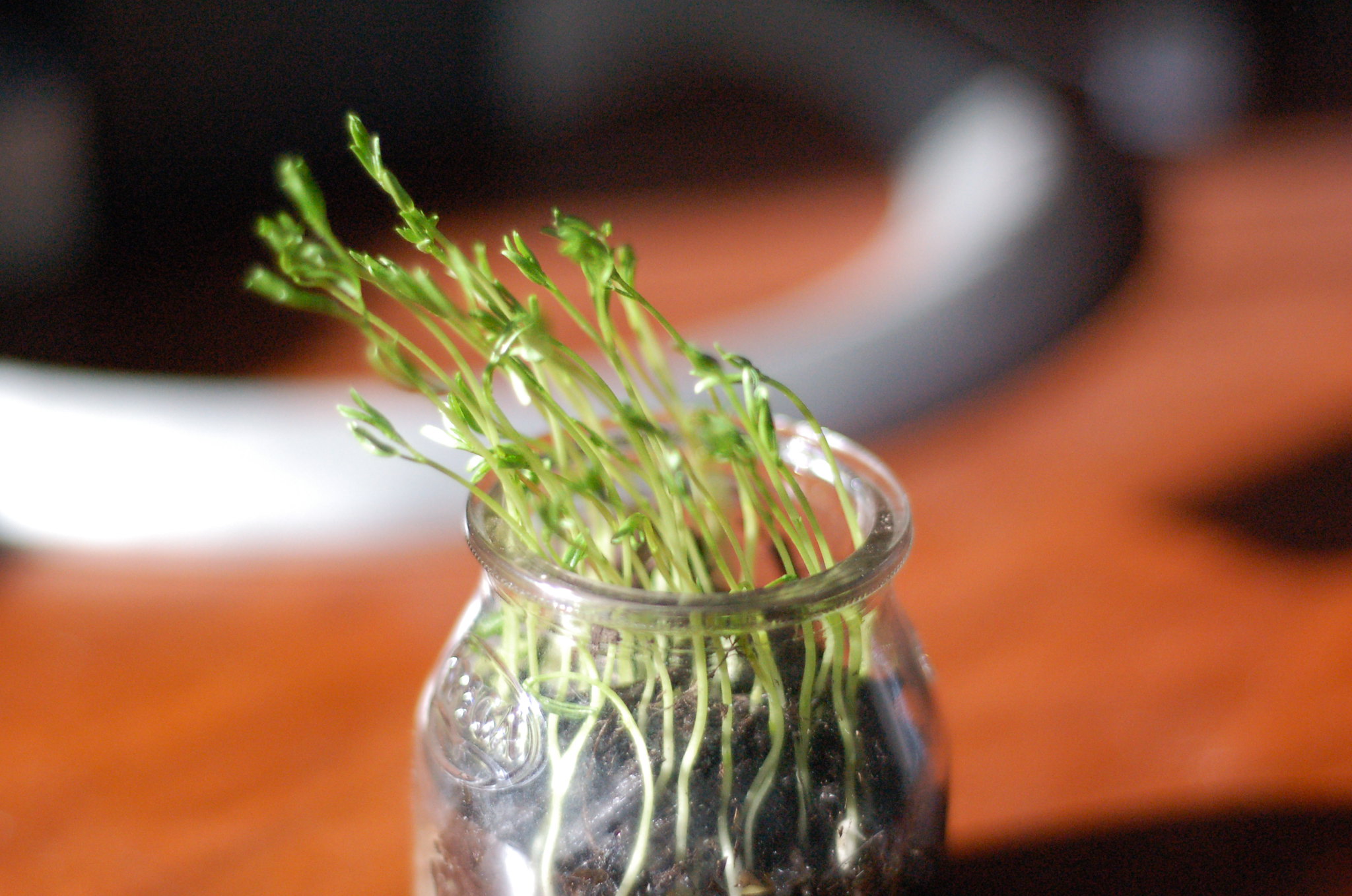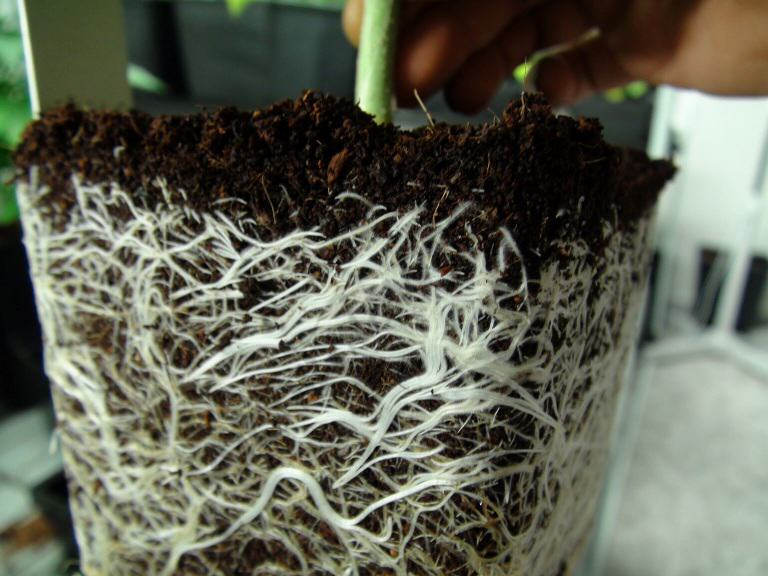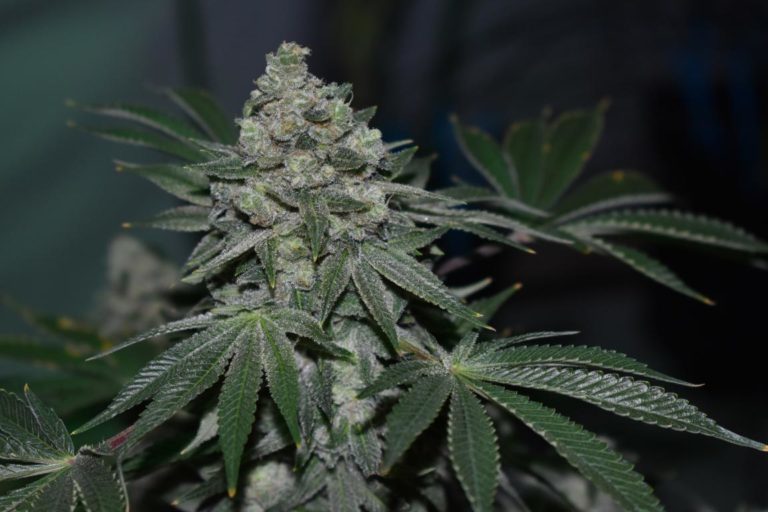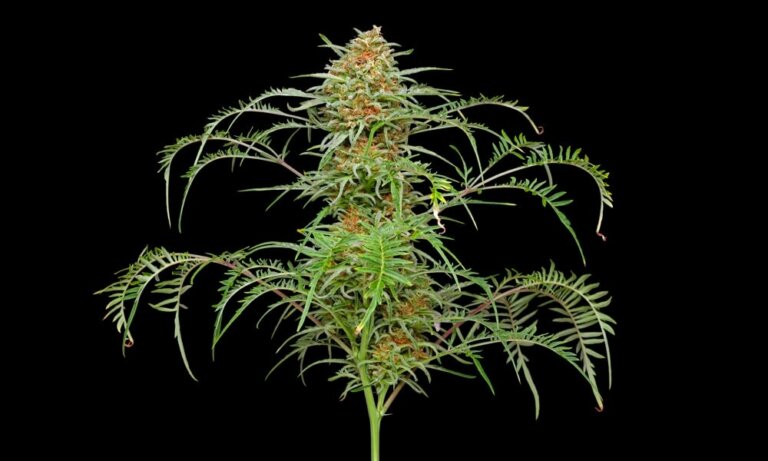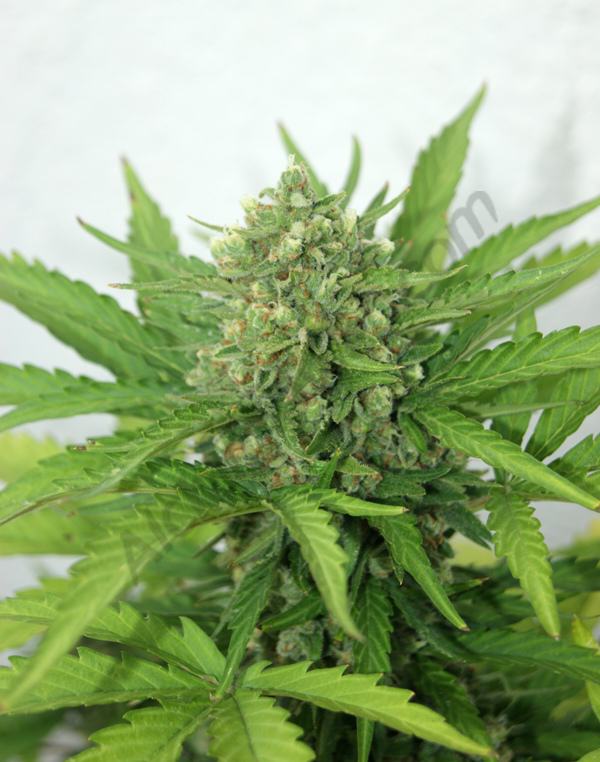How to make Seed Sprout Tea (SST) for cannabis plants
List of contents
What is Seed Sprout Tea or SST?
Despite forming part of Chinese cuisine and medicine for centuries or even millennia, it's only been in the last 30 or 40 years that the western world has really woken up to the health benefits of eating seed sprouts, or germinated seeds. These days it's widely accepted that adding some sprouted beans or other seeds to our daily diet is highly beneficial for their high content of protein, enzymes, amino acids, vitamins, minerals and antioxidants. But did you know we can get some great results by adding seed sprouts to the diet of our cannabis plants too?
Yes, it's true! Our plants can make the most of the beneficial properties of sprouted seeds and enjoy a natural boost in growth and plant health. Seed sprout tea (SST) is an easy, economical and environmentally-friendly way in which we can irrigate our garden with our own homemade plant growth stimulant, rich in phytohormones, enzymes, minerals and nutrients, and is suitable for use on cannabis plants in vegetative growth as well as during the flowering period, depending on the seeds being used.
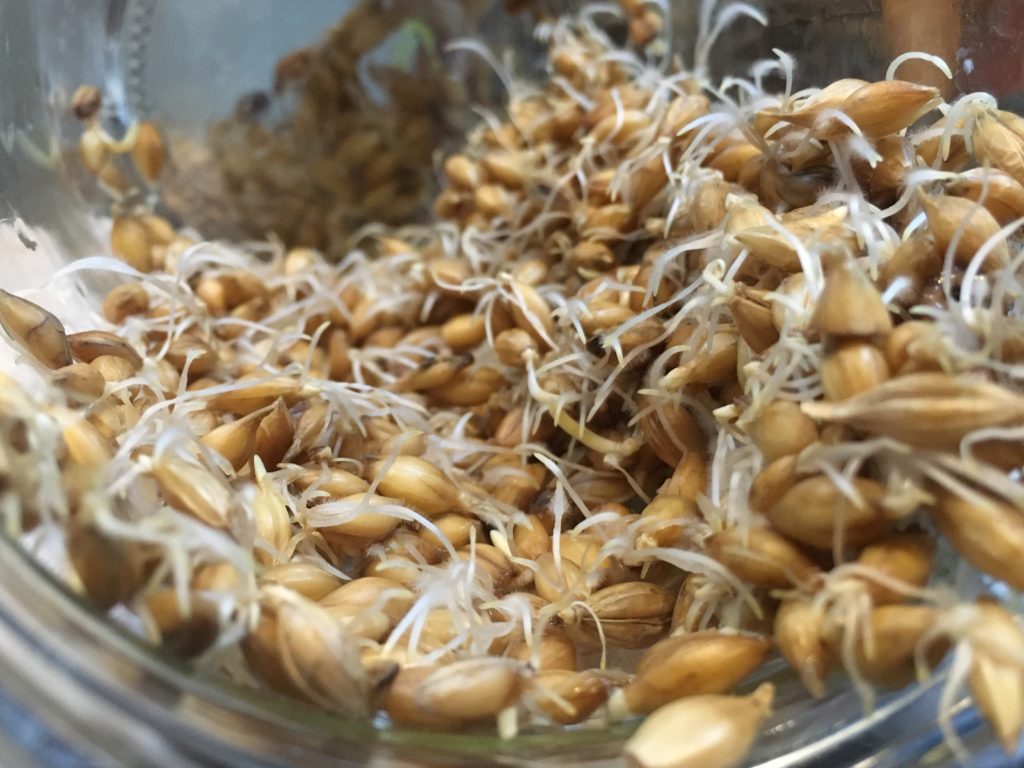
What seeds can we use to make SST?
Seeds or grains will sprout when we expose them to air, water and warmth. This sets in motion a series of biochemical reactions that alter the composition of the seed, during which process the macronutrients are broken down and the bioavailability of micronutrients is hugely increased. In short, the sprouted seeds are far more nutritious than either the grown plant or the seed itself, and it's this vitality that we want to capture and apply to our organically-grown cannabis plants, whether we're cultivating outdoors, in greenhouses or indoors using grow lamps.
There are a few types of seed that are most commonly used for this purpose, these are primarily maize, barley, alfalfa and lentils. These are used at different times, depending on what stage of life our plants are in, and the desired effect.
Barley (Hordeum vulgare)
Sprouted barley grains contain are very high in enzymes and gibberellins, as well as many vitamins, minerals, amino acids and nutrients. As well as the growth-promoting effects of gibberellins, barley SST is principally applied in order to establish and maintain the enzymes in the substrate. These enzymes help to digest dead roots, keeping the substrate and root zone in good health, as well as potentiating the soil food web and improving nutrient uptake. Some of these enzymes, specifically chitinase enzymes, have been shown to have an inhibiting effect against fusarium, a pathogenic fungus that causes great losses in agriculture as well as in cannabis gardens.
If whole barley grains are difficult to find then malted barley is a good substitute. Because the grain has already been sprouted as part of the malting process, this is a much faster method and will only need to be steeped, or "bubbled" in water for a few hours to make a natural enzyme tea, although freshly-sprouted seeds will always be more effective. To use malted barley add 2 tablespoons per gallon of water. Apply this or Barley SST once a week during vegetative growth and then give a top-up application roughly halfway through the flowering period.
Alfalfa (Medicago sativa)
Rich in enzymes, vitamins, proteins and, most importantly, triacontanol, a potent growth-boosting plant hormone which increases photosynthesis by raising chlorophyll levels, increasing root mass, alfalfa seed sprout tea is a powerful plant stimulant that's perfect for the transition into flowering, when it helps to maintain close internode spacing and increase root mass. It can also be used in combination with Corn SST during vegetative growth and flowering as a general growth booster. More care must be taken with alfalfa as it is very powerful indeed and we recommend to either start the process with half the amount of seeds or to dilute in double the quantity of water before application.
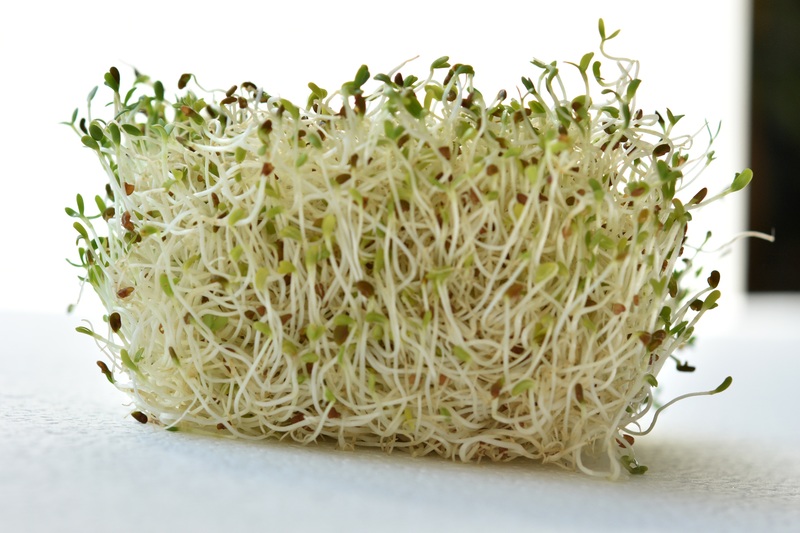
Corn (Zea mays)
Corn or maize sprouts are high in enzymes, minerals and nutrients, and also very rich in cytokinins, a plant growth hormone which promotes lateral budding, branching and the development of thicker stems leading to improved nutrient transport and the capacity for heavier crops. It can even be used at twice the strength to control height, resulting in really squat, bushy plants, perfect for growing spaces with reduced headroom. Organic sweetcorn grains are the most common source of corn to use for sprouting, but all maize grains are easy to germinate and some growers even seek out heirloom varieties like Blue Corn to ensure their SST is GMO-free. Corn SST is best applied in late vegetative growth and up to the fourth or fifth week of flowering.
Lentils (Lens culinaris or Lens esculenta) and other legumes
While alfalfa is, in fact, a legume, here we're talking about other legumes, not only lentils but also larger seeds such as peas, beans or chickpeas. The sprouts of these seeds contain high concentrations of auxins, producing an SST that makes a great rooting stimulant as well as working to boost growth in general. Lentils are a great choice because, due to their relatively small size, they will germinate faster than the larger legumes.
These are the most commonly used seeds for making SSTs, but it doesn't mean that other types of seed won't work equally worth experimenting with. For example, an SST using sprouted hemp seeds ought to be an excellent growth booster for cannabis plants, while sunflower seeds are well known to be high in phytohormones, and many others such as rice, fenugreek, pumpkin have been recommended as well.
How to use plant hormones in cannabis cultivation
In this blog post, we take a look at the complex world of plant hormones, talking about the wide range of effects they have, and how they control and regulate almost every aspect of our plants' lives.
It's important to always use seeds from organic agriculture for our SSTs, to avoid the possibility of introducing any trace of chemical pesticides and other undesirable compounds into our garden. The organic aisle in the local supermarket or health store is often the most convenient place to source seeds for sprouting, usually providing us with all the seeds listed above, alongside a range of other seeds that we could try out for ourselves at home.
What will we need to make SST?
- 28g (1oz) of your chosen seeds, beans or grains
- 1/4 tsp Kelp meal
- Clean water
- Sieve
- Glass jar
- Cheesecloth & elastic band
- Blender/food processor
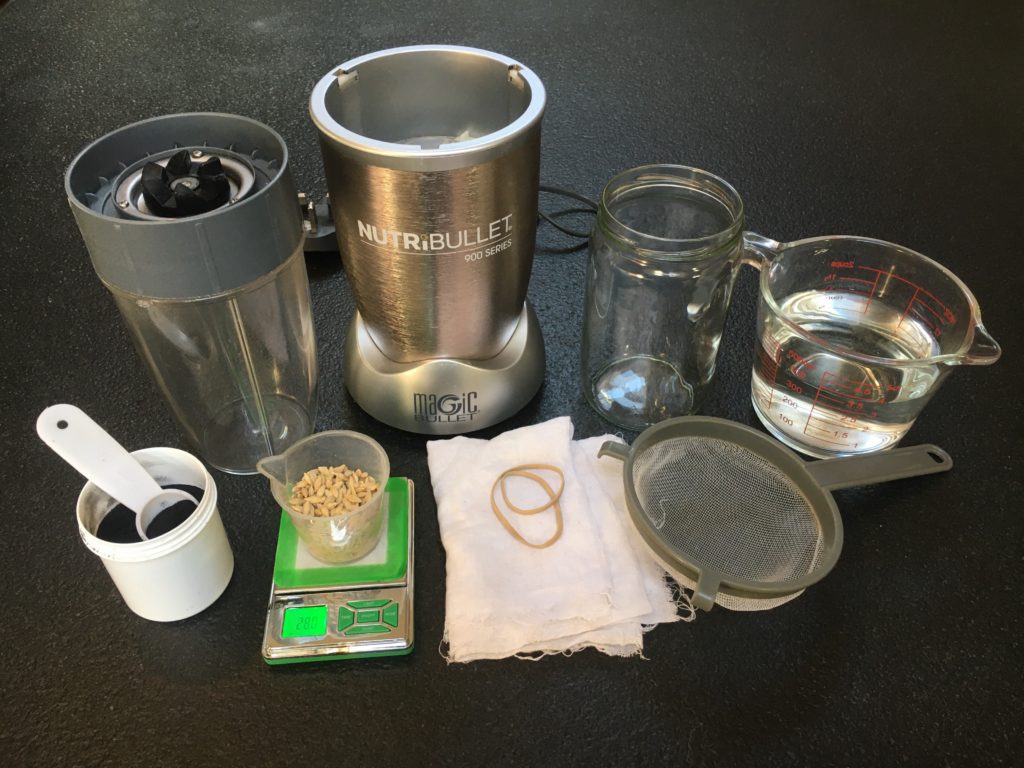
How do we make SST?
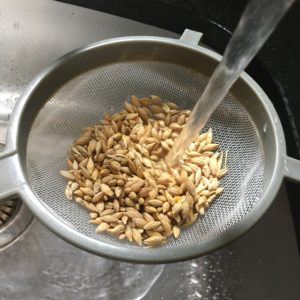 Thoroughly rinse the seeds in clean water to remove any dirt, dust or contamination. This is best done using a sieve under a running tap. This also helps to remove any abscisic acid, a growth-inhibiting hormone that occurs on the outer shell of many seeds.
Thoroughly rinse the seeds in clean water to remove any dirt, dust or contamination. This is best done using a sieve under a running tap. This also helps to remove any abscisic acid, a growth-inhibiting hormone that occurs on the outer shell of many seeds.
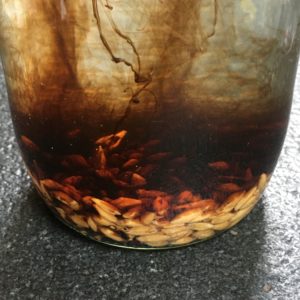
Soak the seeds overnight in clean water. Adding a quarter-teaspoon of kelp meal at this point will infuse the water with growth-promoting phytohormones and help to accelerate the germination process. In this case, we've used the soluble kelp powder Alga Plus from Jumus.
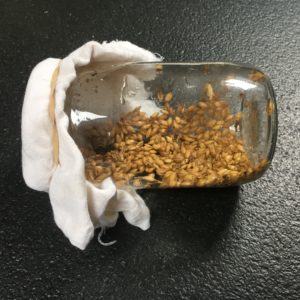 Drain and rinse the seeds in clean water after soaking for at least 8 hours and put them back into the jar. They should be wet enough so that the seeds will adhere to the sides of the jar, but not sitting in water. Cover the jar mouth with cheesecloth and fix with a rubber band. This gives ventilation while stopping any insects, or dust falling in. Placing the jar on its side allows for a greater surface area of the seeds to be in contact with the air.
Drain and rinse the seeds in clean water after soaking for at least 8 hours and put them back into the jar. They should be wet enough so that the seeds will adhere to the sides of the jar, but not sitting in water. Cover the jar mouth with cheesecloth and fix with a rubber band. This gives ventilation while stopping any insects, or dust falling in. Placing the jar on its side allows for a greater surface area of the seeds to be in contact with the air.
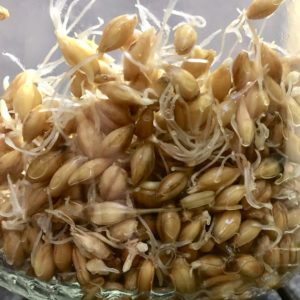 Rinse and drain the seeds at least twice a day until the sprouting tails are as long as the seeds themselves. This usually takes a few days. Then blend the sprouted seeds in a food processor along with a cup or so of water. In our experience, the "Nutri-Bullet" type of blender is best, but pretty much any kind of food processor will do the trick to a satisfactory level.
Rinse and drain the seeds at least twice a day until the sprouting tails are as long as the seeds themselves. This usually takes a few days. Then blend the sprouted seeds in a food processor along with a cup or so of water. In our experience, the "Nutri-Bullet" type of blender is best, but pretty much any kind of food processor will do the trick to a satisfactory level.
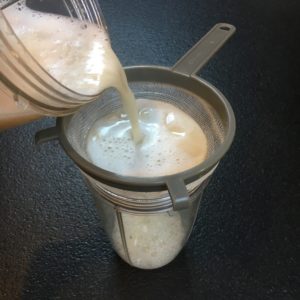 Separate the liquid from the seed pulp using the sieve, straining the resulting liquid into a container. The pulp can be composted or added directly to the soil surface as an enzyme-rich top-dressing.
Separate the liquid from the seed pulp using the sieve, straining the resulting liquid into a container. The pulp can be composted or added directly to the soil surface as an enzyme-rich top-dressing.
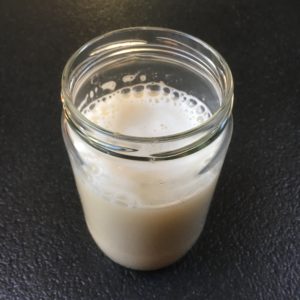 Dilute the resulting liquid in 10 litres water before using it to irrigate your plants. In the case of alfalfa SST, which is much more potent, use 20 litres to dilute or, alternatively, start with half the quantity of seeds.
Dilute the resulting liquid in 10 litres water before using it to irrigate your plants. In the case of alfalfa SST, which is much more potent, use 20 litres to dilute or, alternatively, start with half the quantity of seeds.
What can we do now?
At this stage, some growers like to "bubble" or aerate the SST for 12-24 hours in a bucket with an air pump, while others will add molasses to the tea and ferment it to preserve it for a longer time. Here at Alchimia, we recommend diluting and using any SST right away for maximum freshness and effectiveness, it's easy and cheap enough to make a new batch next time you need some more.
If you'd like to boost the SST with more micro and macronutrients, amino acids and other essential elements, you can mix in some more organic, natural ingredients. For example, you could mix in some Nettle Flour, which is ideal for the growth period, or an infusion of dried Comfrey leaves for a nutritional and health boost during the flowering phase.
While SSTs may not be a replacement for the scientifically formulated, high-precision stimulants and boosters used by many cannabis cultivators, there's no question that, when used correctly, they can be a powerful tool for the self-sufficient organic grower, not only giving great results but also rewarding the grower with the satisfaction of having created their own plant stimulators in a natural way.
We hope this article has been of interest to you, please don't hesitate to leave a comment with your own experiences, suggestions or any questions you may have.
Happy sprouting!

















































